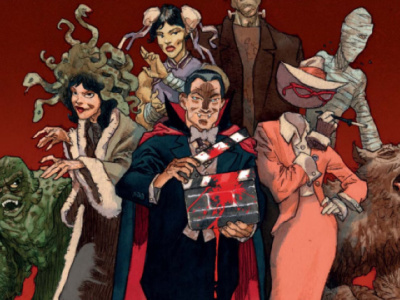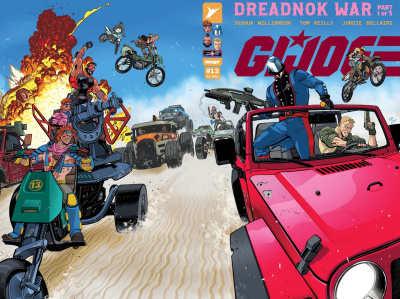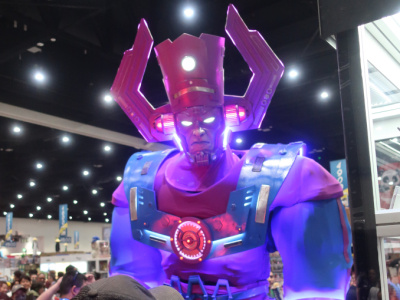Todd McFarlane is taking on toy giant Hasbro/Kenner and their venerable Starting Lineup sports action figures with his own line which he has christened 'McFarlane's Sports Picks.' Hasbro had a virtual monopoly on this field until McFarlane started his sports action figure line with a series of standout hockey players some three seasons ago. The National Hockey League Player's Association has licensed McFarlane's hockey figures, but not the National Hockey League. This prevents McFarlane Toys from using the NHL team logos on their figures. Undeterred by the league's restrictions McFarlane has gotten the rights to use the logos of the companies that make sticks, gloves, helmets, etc. for the NHL teams. The use of these logos plus McFarlane Toys'dynamic posing and typically accurate sculpting of the player's faces makes for some very exciting sports figures -- figures which, frankly, make their competition's efforts look somewhat stodgy.
Now McFarlane has taken this battle to the gridiron. Once again McFarlane Toys has come to an agreement with the player's association and not the league itself. Under license from the NFL Player's Association, McFarlane Toys will produce a series of seven football figures featuring some of the best players in the professional ranks. Included in the series are Kurt Warner, Warren Sapp, Edgerrin James, Randy Moss, Emmitt Smith, and Eddie George. So far, at least, the company has not been able to come to an agreement with the NFL.
Why have the NHL and the NFL acted to protect their sole licensee in this category, when they should be able to see that McFarlane Toys does indeed bring some new and exciting elements to sports action figures? The answer lies in the experience that the sports leagues have had in licensing numerous companies to manufacture trading cards. Back in the hoary old days of sports card expansionism, the NFL Players Association was involved in a bitter lawsuit with the league -- a lawsuit that it financed by licensing way too many card companies to create football cards. Too many cooks did spoil the broth in that instance, and the leagues, having seen their once mighty card royalties dwindle, have generally been much more circumspect in their licensing during the last five years. While too much competition can be a bad thing, especially when it results in situation where the collector's urge to be a completist within his chosen field becomes financially unattainable, a little competition can shake up a market and lead to improved products and category growth.







